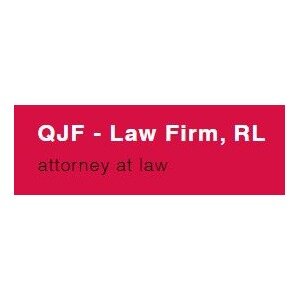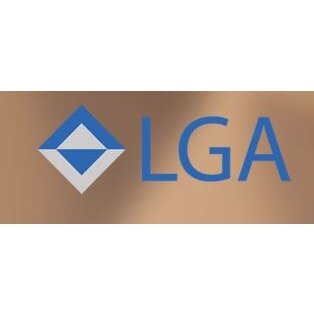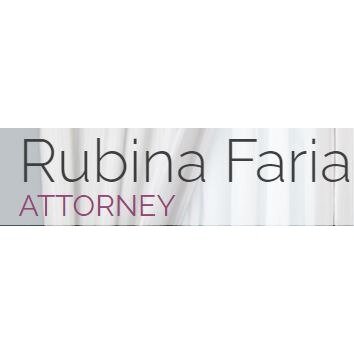Best International Trade Law Lawyers in Funchal
Share your needs with us, get contacted by law firms.
Free. Takes 2 min.
List of the best lawyers in Funchal, Portugal
About International Trade Law in Funchal, Portugal
International Trade Law in Funchal, Portugal, deals with the rules and customs governing the trade of goods, services, and intellectual property across national borders. Funchal, being a major city on the island of Madeira, benefits from Portugal's strategic trade position within the European Union. The city has a thriving port that facilitates trade and has developed a legal infrastructure to support international business activities. Businesses in Funchal must navigate a complex landscape of EU regulations, international agreements, and Portuguese national legislation. This legal framework ensures that trade is conducted fairly, minimizes disputes, and promotes economic interactions on a global scale.
Why You May Need a Lawyer
Individuals and businesses in Funchal may seek legal advice in International Trade Law for a variety of reasons:
- Dispute Resolution: Resolving conflicts that arise from international trade transactions, including breach of contract or non-compliance with trade agreements.
- Trade Compliance: Understanding and complying with Funchal’s, and by extension Portugal’s, trade regulations, tariffs, and customs laws.
- Contract Drafting and Review: Creating or reviewing international trade contracts to ensure they meet all legal requirements and protect your interests.
- Export/Import Regulations: Navigating the complexities of importing goods to or exporting goods from Funchal.
- Intellectual Property: Protecting intellectual property rights that might be threatened in international transactions.
- Investment Issues: Legal help related to foreign direct investment and commercial presence in other jurisdictions.
- Trade Sanctions Compliance: Ensuring business operations are in line with international sanctions and embargoes.
Local Laws Overview
Several key legal frameworks affect International Trade Law in Funchal:
- EU Trade Regulations: As part of the EU, Portugal adheres to union-wide regulations that standardize trade practices across member states.
- Portuguese Customs Code: This includes national procedures for the import and export of goods, documentation requirements, and tariffs.
- Intellectual Property Laws: Laws related to trademarks, patents, and copyrights relevant to international commerce.
- Dispute Resolution Mechanisms: Systems in place for resolving trade-related disputes, including arbitration and mediation services.
- Taxation and Tariffs: The legal aspects regarding value-added tax (VAT) for cross-border trade, customs duties, and other fiscal policies.
- Environmental Regulations: Compliance with environmental standards affecting international trade, particularly shipping and logistics.
Frequently Asked Questions
1. What is the role of international trade law for businesses in Funchal?
It helps businesses engage in cross-border transactions by ensuring compliance with import/export laws and resolving any disputes that arise.
2. What are the most common legal services provided by international trade lawyers in Funchal?
They offer services in contract negotiation and drafting, dispute resolution, compliance audit, and advice on regulatory requirements.
3. How can I protect my intellectual property in international trade?
Registering your trademarks and patents in key markets and using legally sound contracts to clarify IP rights in trading agreements are crucial.
4. What should I consider when drafting an international trade contract?
Include clear terms on payment, delivery, risk, liability, and dispute resolution, and ensure compliance with relevant laws.
5. How are trade disputes typically resolved in Funchal?
Through arbitration, mediation, or litigation based on the agreed clauses in the trade agreement or applicable legal frameworks.
6. Are there specific import/export licenses required in Funchal?
Yes, certain goods may require specific licenses dictated by national and EU laws, which can be clarified by legal professionals.
7. How does EU membership impact trade laws in Funchal?
It facilitates trade by harmonizing standards and reducing barriers among member states, aligning Funchal with broader EU trade policies.
8. Can international trade law help with tax optimization?
Yes, by understanding applicable norms and leveraging tax treaties to minimize tax liabilities on international transactions.
9. What role do governmental bodies in Funchal play in international trade?
They regulate cross-border trade activities, enforce laws, and offer support services for businesses involved in international trade.
10. How do I find a qualified international trade lawyer in Funchal?
Seek recommendations from business associations, look for professionals with specific trade law experiences, or consult the Order of Portuguese Lawyers.
Additional Resources
If you seek further guidance, consider the following resources:
- Direção-Geral das Atividades Económicas (DGAE) - Provides information on economic activities regulation.
- Sistema de Informação Cadastral Simplificado (SICS) - A resource for simplified tax and customs information.
- Order of Portuguese Lawyers - A professional body where you can locate qualified legal practitioners.
- European Union Official Portal - Offers information and updates on EU trade regulations and policies.
Next Steps
If you need legal advice on international trade matters in Funchal, consider the following steps:
- Identify your specific needs regarding international trade law.
- Research and contact qualified international trade lawyers or law firms in Funchal.
- Schedule consultations to discuss your situation and potential legal strategies.
- Evaluate the experience, fees, and approach of different lawyers to select the best fit for your needs.
- Ensure clear communication and set defined goals for the legal assistance you require.
Lawzana helps you find the best lawyers and law firms in Funchal through a curated and pre-screened list of qualified legal professionals. Our platform offers rankings and detailed profiles of attorneys and law firms, allowing you to compare based on practice areas, including International Trade Law, experience, and client feedback.
Each profile includes a description of the firm's areas of practice, client reviews, team members and partners, year of establishment, spoken languages, office locations, contact information, social media presence, and any published articles or resources. Most firms on our platform speak English and are experienced in both local and international legal matters.
Get a quote from top-rated law firms in Funchal, Portugal — quickly, securely, and without unnecessary hassle.
Disclaimer:
The information provided on this page is for general informational purposes only and does not constitute legal advice. While we strive to ensure the accuracy and relevance of the content, legal information may change over time, and interpretations of the law can vary. You should always consult with a qualified legal professional for advice specific to your situation.
We disclaim all liability for actions taken or not taken based on the content of this page. If you believe any information is incorrect or outdated, please contact us, and we will review and update it where appropriate.











